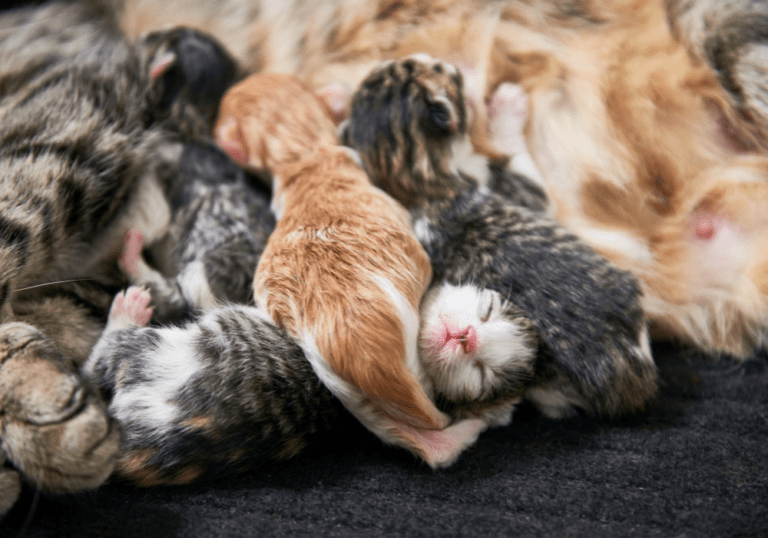Preparing for Your Kitten’s Developmental Milestones

Welcoming a new kitten into your home is an exciting experience filled with love, joy, and a bit of responsibility. Just like human babies, kittens go through several distinct developmental stages that are crucial for their growth and well-being. Understanding these milestones will help you provide the best care for your furry friend. In this article, we’ll walk you through the key developmental phases of your kitten’s life and offer tips on how to support them during this important time.
Birth to 2 Weeks: The Newborn Stage
When kittens are born, they are completely dependent on their mother. They can’t see or hear and rely heavily on their sense of smell to identify her. During the first two weeks, kittens spend most of their time sleeping and nursing. Their mother plays a critical role in their lives, grooming them and helping them eliminate waste through licking.
By the end of this period, you’ll notice significant changes, as kittens begin to open their eyes and ear canals. This newfound ability to see and hear marks the beginning of their exploration journey.
2 to 8 Weeks: The Growing Stage
As kittens reach the 2 to 8-week mark, they begin to explore their surroundings. Their eyesight improves, although it may still be a bit blurry. Around three weeks, baby teeth start to emerge, and they gradually become less reliant on their mother for food as they begin to eat solid kitten food.
This stage is crucial for socialization. Kittens learn to interact with their littermates, other pets, and humans. Gentle handling and positive experiences during this period can foster a well-adjusted adult cat. The American Veterinary Medical Association (AVMA) emphasizes the importance of socialization, noting that it may be more challenging to socialize cats who haven’t had positive experiences before the age of 7 weeks.
8 to 12 Weeks: The Weaning Stage
Weaning begins at this stage, as kittens transition from nursing to eating solid food. This is also when they may be ready to join new families. Kittens are full of energy and love to play—pouncing on imaginary prey and engaging in play fights with their siblings or toys.
As they adapt to their new homes, it’s essential to continue providing opportunities for play and socialization. Engaging with your kitten during this time will help fortify the bond between you.
3 to 6 Months: The Teenager Phase
Between three and six months, your kitten will undergo various physical changes. Baby teeth fall out, making way for permanent teeth. This is also a crucial time to cat-proof your home, as teething kittens love to chew on anything in sight.
At this age, kittens are starting to mature physically and mentally. They may become sexually mature as early as six months, making spaying and neutering an essential consideration. The ASPCA recommends scheduling these procedures by five months to prevent unwanted litters and reduce the risk of certain health issues.
6 to 18 Months: The Young Adult Stage
Your kitten is now in its teenage phase and will reach full maturity during this period. These young cats are energetic and enjoy playtime with both humans and other pets. It’s essential to provide plenty of toys and activities to keep them mentally stimulated.
As your kitten approaches one year, it’s time to transition from kitten food to adult cat food. Adult cats require fewer calories and different nutrients, so gradually mix the two types of food to ease the transition.
Veterinary Care for Your New Kitten
If you have recently welcomed a new kitten into your home, it’s crucial to consult our doctors at Willow Glen Pet Hospital within the first few weeks. A checkup is vital to ensure your kitten is healthy and to provide necessary vaccinations. Regular veterinary visits will help monitor your kitten’s growth and development.
Conclusion
Understanding your kitten’s developmental milestones is essential for providing the best care possible. By being aware of these stages and offering the appropriate support, you will help your furry friend grow into a healthy, well-adjusted adult cat.
If you need more help or have any questions, call us at Willow Glen Pet Hospital, visit us online at willowglenpethospital.com, or reach us at (669) 342-7472. You can find us at 1033 Willow Street, San Jose, CA, 95125, US. Our hours are Monday to Saturday from 8:00 am to 6:00 pm.
